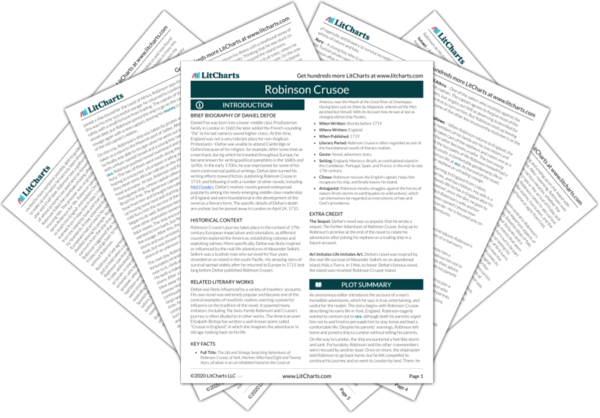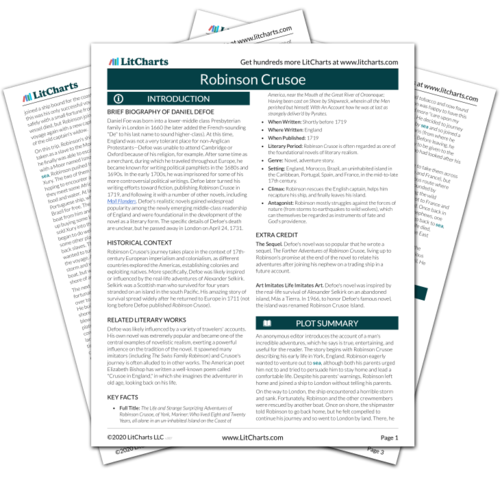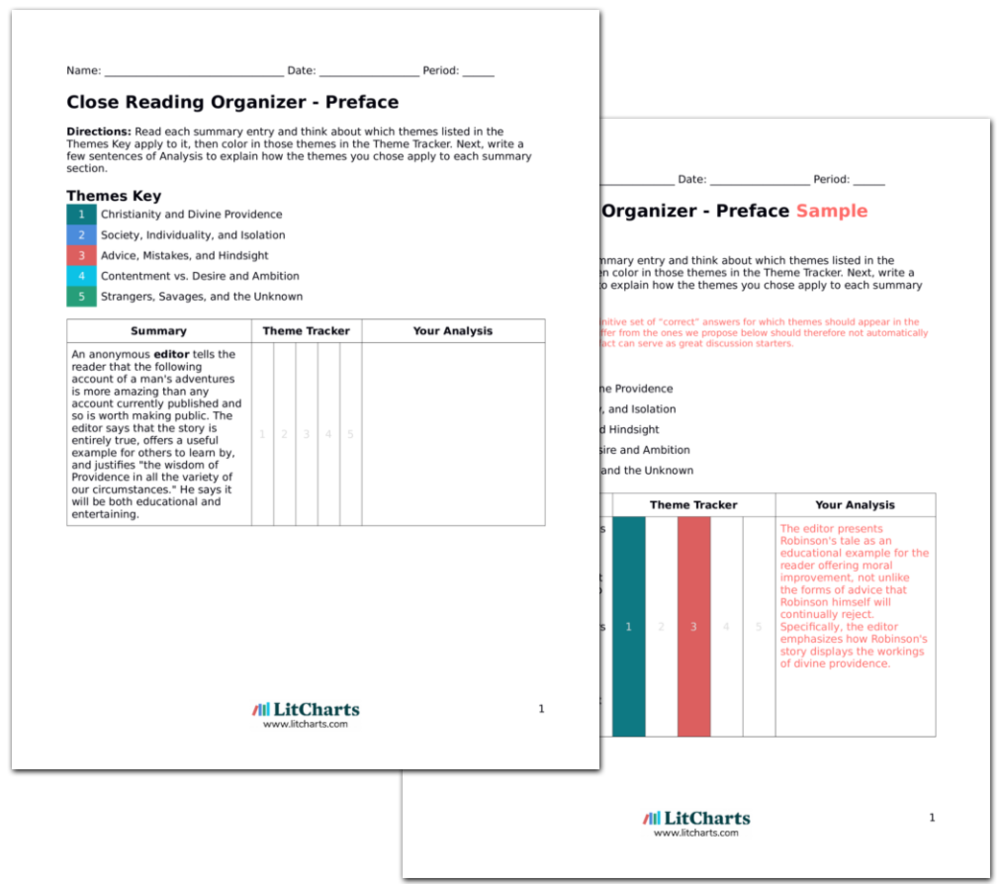![]()
LitCharts assigns a color and icon to each theme in Robinson Crusoe, which you can use to track the themes throughout the work.
As much as Defoe's novel is about Robinson's literal, physical journey, it is also about his more metaphorical, spiritual journey toward Christianity. In the beginning of the novel, Robinson disregards Christianity and leads a life that he later looks back on as wicked. He discounts his father's warning that God will not bless him if he goes to sea, and does not thank God when he is rescued from the storm on the way to…
![]()
At the center of Robinson Crusoe is a tension between society and individuality. As the novel begins, Robinson breaks free of his family and the middle-class society in which they live in order to pursue his own life. If he were to stay at home, he would live a life already arranged for him by his father and by the constraints of English society. By setting out to sea, Robinson prioritizes his sense of individuality…
![]()
Robinson Crusoe is constantly disregarding prudent advice. He begins the novel by discounting his parents' advice not to go to sea, disregards the shipmaster's advice to go home after the storm on the way to London, and goes against his own better judgment in trying to voyage from Brazil to Africa. Even at the end of the novel, he disregards the widow's advice in setting out on yet another sea voyage. Each time, Robinson later…
![]()
"My students can't get enough of your charts and their results have gone through the roof." -Graham S.

Robinson leaves home at the beginning of the novel because he is not content with a comfortable, middle-class existence. In England, his father can provide for him and help him establish a life. He tells Robinson that their middle station in life is the most comfortable: it is free from the anxieties of power or privilege and from the suffering of poverty. But Robinson cannot stay content with mere comfort. He has ambition and desire…
![]()
Throughout his wandering journeys, Robinson continually encounters the unknown in a variety of forms. He visits unknown lands, sees strange plants and animals, and encounters foreign peoples. His first response to such experiences with various "others" is usually fear. He is especially frightened by the strange beasts he sees in Africa and on his island, as well as by the African natives he sees and the Caribbean "savages," who come to his island. Stemming in…
![]()

“Would not have made it through AP Literature without the printable PDFs. They're like having in-class notes for every discussion!”
Get the Teacher Edition
“This is absolutely THE best teacher resource I have ever purchased. My students love how organized the handouts are and enjoy tracking the themes as a class.”
Copyright © 2024 All Rights Reserved Save time. Stress less.AI Tools for on-demand study help and teaching prep.
 Quote explanations, with page numbers, for over 44,233 quotes.
Quote explanations, with page numbers, for over 44,233 quotes. PDF downloads of all 1,999 LitCharts guides.
PDF downloads of all 1,999 LitCharts guides. Expert analysis to take your reading to the next level.
Expert analysis to take your reading to the next level. Advanced search to help you find exactly what you're looking for.
Advanced search to help you find exactly what you're looking for.
 Expert analysis to take your reading to the next level.
Expert analysis to take your reading to the next level. Advanced search to help you find exactly what you're looking for.
Advanced search to help you find exactly what you're looking for.